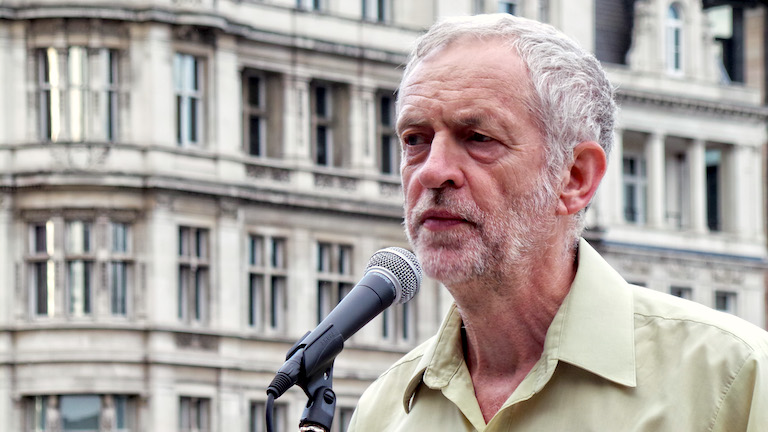
Jeremy Corbyn - Photo © Garry Knight, CC by 2.0
On the face of it, the apparent success of Jeremy Corbyn in the Labour leadership race should be a real headache for the Scottish National Party. For years it’s been claiming that Labour is a Right-wing party defined by the legacy of Tony Blair and incapabale of renewal. Yet, here is Labour apparently turning Left, Left, Left. How can the SNP continue to claim to be the sole inheritor of social democratic values?
Corbyn may not win the leadership, but he has shown that Labour is still capable of increasing its membership by 160,000 and taking radical politics seriously. More important, Corbyn is a true unionist who believes that nationalism is incompatible with Left-wing politics.
The SNP has done good business on the back of Labour’s ‘modernisation’, which was never popular in Scotland. Alex Salmond adopted a raft of abandoned Labour policies, including free higher education, unilateral nuclear disarmament and wealth taxes. The SNP also opposed Blair’s attempts to reform the NHS and capitalised on opposition to the Iraq war.
At the general election, Nicola Sturgeon was still in the game of outflanking Labour on the Left. Her anti-austerity platform had many similarities to that which Corbyn is promoting now. She advocated public investment over deficit reduction, a 50p top tax rate, mansion tax, opposition to fracking, ending the benefit cap, etc.
Corbyn has even hinted that he might enter into a post election “confidence and supply” arrangement with the SNP, short of a formal coalition. Ed Miliband, when leader, said he would rather not have a Labour government than rely on support from the Nationalists.
So you might have thought that Scottish voters, seeing Labour return to its old values, could be rethinking their support for the SNP. So far, though, the SNP hasn’t been visibly affected by Corbynmania. In the opinion polls, Sturgeon’s popularity and that of her party are higher today than at the election. As things stand, she is well placed to repeat the “tsunami” next May at the Scottish parliamentary elections. Meanwhile, Labour is set to lose all its constituency seats.
This may in part be because, though his policies seem to be popular in Scotland, Corbyn’s surge seems to have stopped at the border. The Scottish Labour Party this month concluded its own low-key leadership contest, which saw former deputy leader Kezia Dugdale win out over former finance spokesperson Ken Macintosh. Dugdale has said that Corbyn as leader would “leave Labour carping on the sidelines” for a generation.
Some Labour activists are distraught that Dugdale, who was the clear favourite before her victory, has not tried to attract new people into the party by promising wealth taxes, a review of Clause 4, or opposing Trident nuclear weapons in the Clyde. This has revived claims that the Labour Party in Scotland is destined to remain a “branch office”, as former leader Johann Lamont put it when she resigned.
It would be a strange irony if Corbyn were to win the leadership in England with the Scottish Labour Party becoming the last redoubt of the Labour Right. Sturgeon would have no problems with that, though, so long as there is clear red water between the SNP and her main opposition in Scotland.



















